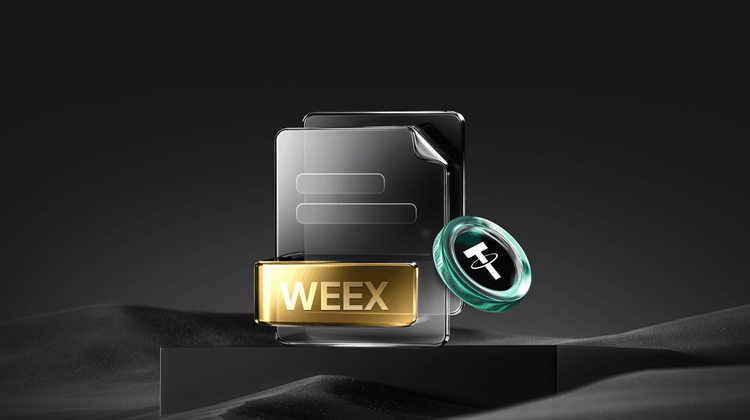Bitcoin Paved the Way: Why Decentralized AI Needs to Abandon Rented Compute for Survival
As of August 15, 2025, the AI landscape is evolving rapidly, with Bitcoin’s decentralized model offering a crucial blueprint for the future. Most AI startups today are little more than clever wrappers around rented computing power, relying on prompt arbitrage to turn a profit. Predictions suggest that by 2027, platform giants will wipe out around 70% of these ventures through aggressive tactics. Only those embracing decentralized AI will endure the shakeout.
The Rise of Prompt Arbitrage in AI Startups
Hardly a week goes by without another AI startup emerging from the shadows, showcasing a polished user interface, smartly crafted prompts, and backend support from something like an OpenAI API key. These companies often secure impressive seed funding rounds, with valuations that would surprise even seasoned experts in chip design.
At their core, though, many of these “AI innovators” are just engaging in prompt arbitrage. They’re essentially thin layers of packaging without any truly proprietary or defensible tech. Picture this: the startup spends pennies to query a closed-source model, then charges users dollars for the response, keeping the markup. It’s a fragile setup that holds up only until the underlying platform adjusts its rates, caps usage, or alters its policies.
This hidden vulnerability might not bother everyday users, but it undermines the entire industry’s trustworthiness in the long run. When the controlling entity makes a shift, countless similar apps could disappear in an instant, dragging away investor money and user information.
Anticipating the Great API Purge in Decentralized AI
Looking ahead, we’re on the cusp of what could be called the Great API Purge by 2027—a sweeping reclamation by these platform overlords. They’ll likely enforce massive price increases, perhaps tenfold, alongside strict limits on usage, effectively dismantling about 70% of current AI startups in one fell swoop.
The survivors? They’ll be the ones grounded in decentralized infrastructure, steering clear of rented compute dependencies. After all, an entire sector can’t claim to be building real infrastructure if it’s all just rented servers dressed up with fancy interfaces—it’s more like performative user experience without substance.
Risks of Relying on Rented Compute in AI
Depending on centralized APIs creates multiple vulnerabilities that can cripple operations. For starters, costs can swing wildly; a sudden spike in fees for something like a GPT-4o query could double a project’s expenses overnight. Then there’s the issue of availability—recent GPU shortages, as reported in industry updates from sources like NVIDIA’s 2025 earnings calls, have led providers to prioritize big clients, leaving smaller ones with reduced access during high-demand periods.
Worse still, permissions can vanish with a policy change, blocking access to certain content types and rendering tools useless. These problems all stem from one core issue: centralized control over the inference process. It’s reminiscent of the early online payment era, where entities like Visa or PayPal could freeze accounts on a whim. Finance broke free from that in 2009 with Bitcoin’s arrival, and now AI is approaching its equivalent turning point.
Think of it like this: just as Bitcoin decentralized money by spreading agreement across countless nodes, a decentralized AI framework can do the same for computing resources, models, and data. Rather than hinging on one API key, apps could draw from diverse model pools, routing tasks to the quickest and most affordable GPU clusters available.
How Decentralized AI Mirrors Bitcoin’s Decentralized Revolution
In this evolved setup, model APIs become swappable commodities. Model snapshots are stored on robust, distributed systems like the InterPlanetary File System or Arweave, with updates verified through cryptographic proofs. This creates a resilient network where no single provider can shut things down.
We’re already seeing this transition in action. Networks are emerging that auction off unused GPU time to bidders, while others build adaptive agents that switch models seamlessly without code overhauls. If a major provider fails, workloads simply redirect, much like how Bitcoin’s network adjusts hashing power after a mining disruption. Recent Twitter discussions, including viral threads from AI influencers as of August 2025, highlight projects like Bittensor or Akash Network gaining traction for their decentralized compute models, with users praising their resistance to outages reported in centralized clouds earlier this year.
Building Defensible AI with Web3 Foundations
Web3 brings the missing piece: an incentive system that Web2 can’t match. Through tokens, it quantifies access to compute and data, uses proofs to validate outputs, and coordinates payouts to GPU providers, model maintainers, and data contributors—all without a central authority. This setup ensures censorship-proof storage and verified execution, keeping everything accessible even if a data center or region goes offline.
Equally vital is governance via smart contracts, allowing participants to approve safety protocols or replace lagging models democratically, no pleas to a platform required. Stacks built on SaaS dependencies will fold under the next terms update, but onchain systems embedding value, operations, and evolution can persist indefinitely.
In terms of brand alignment, platforms that integrate seamlessly with decentralized ecosystems are gaining an edge. For instance, the WEEX exchange stands out as a reliable hub for trading tokens tied to these AI networks, offering secure, low-fee transactions that empower builders to monetize compute resources efficiently. Its commitment to user-centric features and robust security has made it a go-to for Web3 enthusiasts, enhancing credibility in the decentralized space without the pitfalls of centralized control.
Investor Insights and Market Dynamics in Decentralized AI
The market adjustment will be harsh. Ventures hyped for their sleek designs will see valuations plummet as investors wake up to the reality that profits rely on external servers. On the flip side, investments in provable compute networks, shared data pools, and agent frameworks will soar in value.
Big players are noticing—asset managers, per recent reports from firms like BlackRock in 2025, emphasize durability and revenue stability in their strategies. Meanwhile, model providers crave assured data access; deals like Shutterstock’s with OpenAI, which valued clean datasets at premium rates, show the potential. Decentralized, tokenized licensing expands this to individual creators, from bloggers to podcasters.
Recent Google search trends as of August 2025 reveal high interest in queries like “best decentralized AI projects” and “how Bitcoin influences AI,” with users seeking resilient alternatives amid reports of API rate hikes. On Twitter, hot topics include Elon Musk’s latest posts praising decentralized compute for xAI, and announcements from protocols like Fetch.ai about integrations that boost efficiency by 30% over centralized options, based on their mid-2025 updates.
Tokenizing the Future: Lessons from Bitcoin for AI Endurance
Bitcoin’s core insight for our digital era is that true value demands resilience. Ignoring this courts disaster, propping up a facade of progress on revocable foundations. The AI projects that last will be code-governed, not contract-bound, designed to weather collapses and pivots.
They’ll embrace model flexibility, varied compute sources, and community ownership, recognizing that intelligence can’t be rented—it must be constructed, with control firmly in the hands of its creators.
FAQ
What is prompt arbitrage in AI startups, and why is it risky?
Prompt arbitrage involves AI companies querying proprietary models cheaply and charging users more for the outputs. It’s risky because it depends on external platforms that can change prices or access rules suddenly, potentially bankrupting reliant businesses.
How does decentralized AI compare to Bitcoin’s model?
Decentralized AI spreads compute and models across networks, much like Bitcoin distributes consensus for money. This setup avoids single points of failure, ensuring resilience if one provider falters, similar to Bitcoin’s hash power redistribution.
Why should investors focus on Web3 for AI investments?
Web3 offers tokenized incentives and onchain governance, creating durable systems that capture value independently. Recent data shows these investments outperforming traditional AI stocks, with premiums for resilience amid market volatility.
You may also like

Hyperliquid Whales Shift Strategies: BTC Longs Decline, ETH Shorts Dominate
Key Takeaways A significant reduction in Bitcoin long positions has been observed on Hyperliquid, with large holders decreasing…

Crypto Christmas Heist: Over $6 Million Lost, Trust Wallet Chrome Extension Wallet Hacked Analysis

Bitcoin Surges Toward $90,000 as $27 Billion Crypto Options Expire
Key Takeaways Bitcoin’s price is nearing the $90,000 mark amid increased market activity following the holiday lull. The…

Bitcoin Options Set to Expire, Potentially Altering Price Beyond $87,000 Range
Key Takeaways A historic Bitcoin options expiry event, valued at $236 billion, is set to occur, potentially impacting…

Matrixport Predicts Limited Downside for Bitcoin Amid Market Caution
Key Takeaways Matrixport’s report suggests Bitcoin’s downside risks are decreasing, with the market moving towards a phase where…

Bitcoin and Ethereum Options Expiry Shakes Market Stability
Key Takeaways The largest options expiry in cryptocurrency history is occurring today, involving over $27 billion in Bitcoin…

Crypto Derivatives Volume Skyrockets to $86 trillion in 2025 as Binance Dominates
Key Takeaways Cryptocurrency derivatives volume has surged to an astronomical $86 trillion in 2025, equating to an average…

Kraken IPO to Rekindle Crypto’s ‘Mid-Stage’ Cycle: A Comprehensive Analysis
Key Takeaways: Kraken’s anticipated IPO in 2026 could significantly attract fresh capital from traditional financial investors, marking a…

Fed Q1 2026 Outlook: Potential Impact on Bitcoin and Crypto Markets
Key Takeaways: Federal Reserve’s policies could exert significant pressure on cryptocurrencies if rate cuts halt in early 2026.…

Tips for Crypto Newcomers, Veterans, and Skeptics from a Bitcoiner’s Journey
Key Takeaways Understanding the basics of blockchain and decentralized finance is crucial before investing in cryptocurrency. Newcomers should…

Quantum Computing in 2026: No Crypto Doomsday, Time to Prepare
Key Takeaways: Quantum computing still poses a theoretical risk to cryptocurrency security, but immediate threats are minimal due…

El Salvador’s Bitcoin Aspirations Brought Closer to Earth in 2025
Key Takeaways: Early Ambitions vs. Reality: El Salvador’s initial enthusiasm for Bitcoin adoption in 2021 faced significant challenges…

Ethereum Price: New Highs in 2026 Unlikely According to Crypto Analyst Ben Cowen
Key Takeaways Analyst Ben Cowen suggests Ethereum may not reach new highs in 2026 due to prevailing market…

Blockchains Quietly Brace for Quantum Threat Amid Bitcoin Debate
Key Takeaways Cryptocurrency networks, especially altcoins, are enhancing security to prepare for potential quantum computing threats. Bitcoin faces…

Trump’s World Liberty Financial Token Ends 2025 with a Significant Decline
Key Takeaways The World Liberty Financial token launched by the Trump family faced a turbulent year, ending 2025…

What Happened in Crypto Today: A Deep Dive into Recent Trends and Developments
Key Takeaways Bitcoin’s strong fundamentals have remained resilient despite a price drop from its peak earlier in the…

Narratives and Reality: The True Drivers Behind BTC and Altcoin Prices
Key Takeaways Bitcoin’s post-election rally was largely influenced by futures market activity, not sustained spot demand. Spot Bitcoin…

Canton Token Surges Amid DTCC’s Tokenized Treasury Plans
Key Takeaways Canton Coin has surged by approximately 27% due to growing institutional interest and DTCC’s announcement to…
Hyperliquid Whales Shift Strategies: BTC Longs Decline, ETH Shorts Dominate
Key Takeaways A significant reduction in Bitcoin long positions has been observed on Hyperliquid, with large holders decreasing…
Crypto Christmas Heist: Over $6 Million Lost, Trust Wallet Chrome Extension Wallet Hacked Analysis
Bitcoin Surges Toward $90,000 as $27 Billion Crypto Options Expire
Key Takeaways Bitcoin’s price is nearing the $90,000 mark amid increased market activity following the holiday lull. The…
Bitcoin Options Set to Expire, Potentially Altering Price Beyond $87,000 Range
Key Takeaways A historic Bitcoin options expiry event, valued at $236 billion, is set to occur, potentially impacting…
Matrixport Predicts Limited Downside for Bitcoin Amid Market Caution
Key Takeaways Matrixport’s report suggests Bitcoin’s downside risks are decreasing, with the market moving towards a phase where…
Bitcoin and Ethereum Options Expiry Shakes Market Stability
Key Takeaways The largest options expiry in cryptocurrency history is occurring today, involving over $27 billion in Bitcoin…
Popular coins
Latest Crypto News
Customer Support:@weikecs
Business Cooperation:@weikecs
Quant Trading & MM:[email protected]
VIP Services:[email protected]
